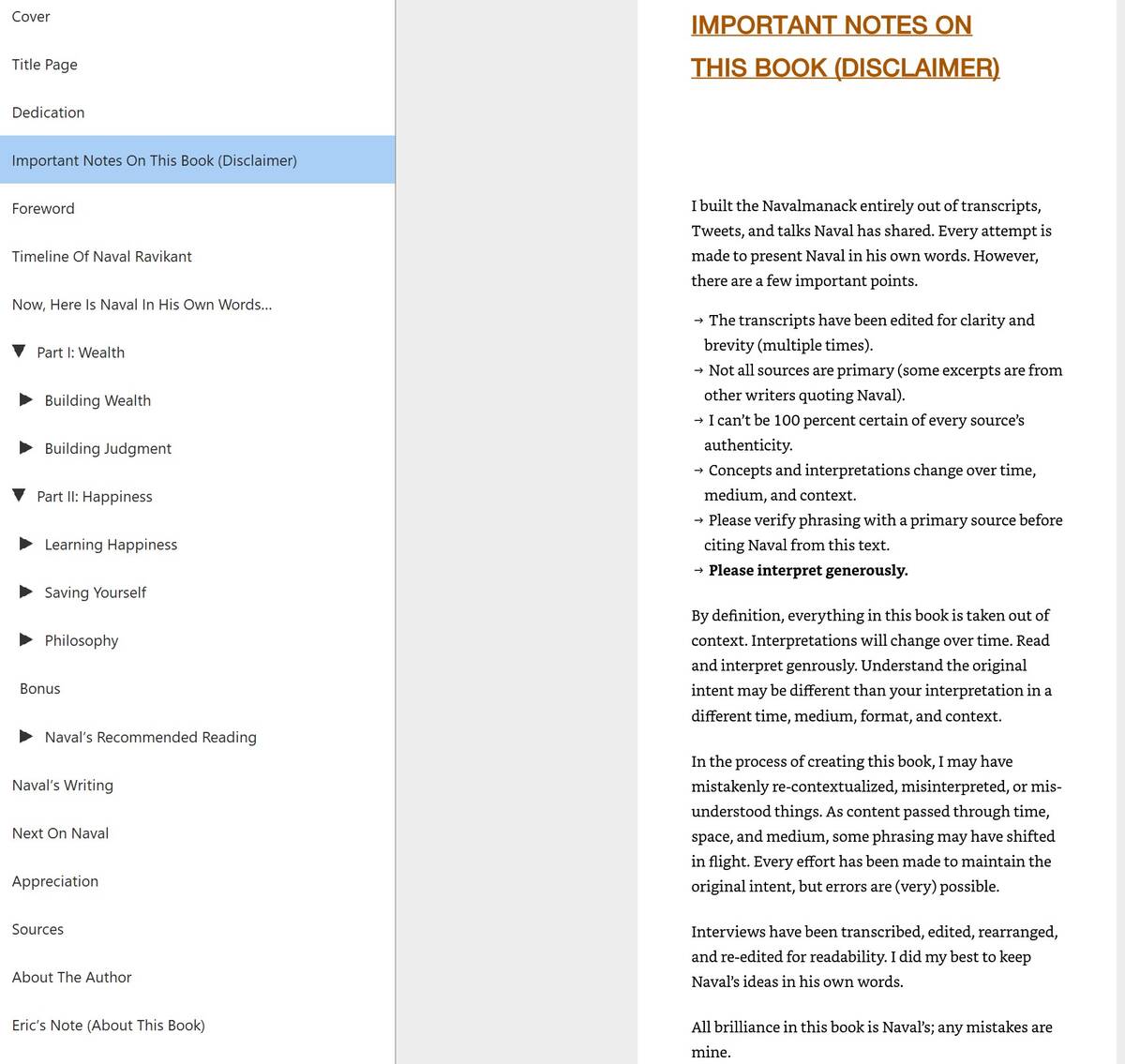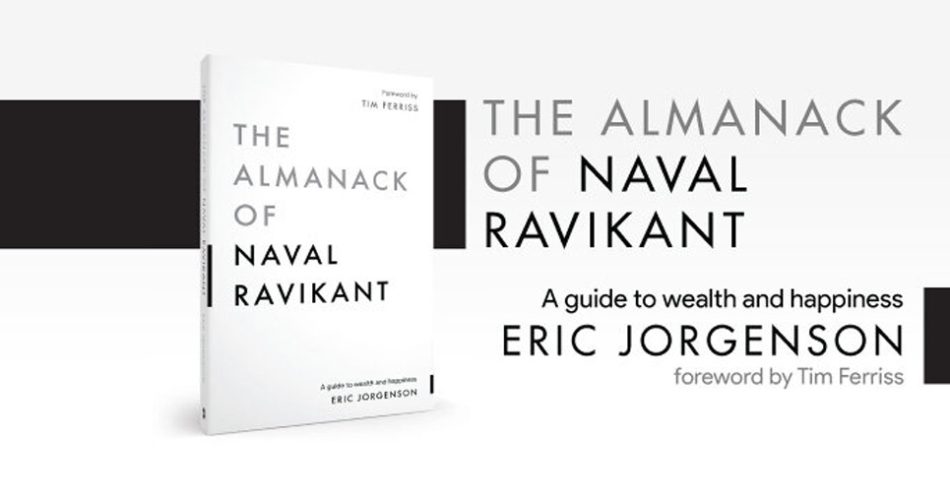I first heard the name of Naval Ravikant in Tim Ferriss‘s Podcast, where select episodes can be fantastic like the one with the AirBnB Co-Founder Joe Gebbia, or the one with the Ethereum inventor Vitalik Buterin. So, when I saw on social that the foreword for this book is given by Tim Ferriss, I got curious and bought the book “The Almanack of Naval Ravikant” by Eric Jorgenson from the Kindle store. I discovered later that the full book was available for free on their official website, after I read the book I realised why the publishers had chosen the dual pricing model – reading my review below will make it clear to you as well.
If you like Naval and follow him online, you will adore the book!
Naval Ravikant is the CEO and co-founder of AngelList, an angel investor of repute, and co-founded vast.com which was acquired by shopping.com. Naval was born in India, came to the USA during his childhood with his parents, studied hard to get into Dartmouth and then grew up in his career. This book was compiled by Eric Jorgenson from the transcripts, tweets and talks by Naval, and not written by Naval Ravikant – this is an important detail to remember while reading the book.
The book starts with an important chapter on “Building Wealth”. Naval drills down the important distinction between seeking wealth over seeking money. Though both are classic pearls of wisdom, youngsters who are starting their careers will do well to understand them, I wish the twenty-year-old version of me was aware of these. The two pieces of wisdom are that wealth is about assets that earn while you sleep, and the incredible power of compound interest (a term he uses often in the book). Joining these two are “You will get rich by giving society what it wants but does not yet know how to get. At scale”, like a computer code, each word here is important. These are followed by his opinions about the importance of specific knowledge, which he defines to be “those that cannot be taught, but can be learned”, having leverage, a force multiplier, for which he gives examples of capital & labour to be permissioned leverage, and code & media to be permissionless leverage (whose cost of replication is almost zero). Repeatedly throughout the book, he urges the readers to be authentic and not to emulate/imitate someone else, and to be accountable for themselves, two points I agree with him 100%.
If you look at even doctors who get rich (like really rich), it’s because they open a business.
–Jorgenson, Eric. The Almanack Of Naval Ravikant (p. 53)
The book continues on, talking about getting paid for your judgement instead of work, getting paid for your reputation (which takes years to build), prioritising your actions, and avoiding ruin. It suggests the readers decide on what they are good at and start helping others on that subject. Naval goes on to list four types of luck – Blind Luck, Luck that follows hard work, Spotting Luck, and the luck that finds you. I liked his definition of what is a resume, it is a catalogue of all your suffering. He urges us to think clearly, which he says is more important than being smart and he quotes how Richard Feynman is able to explain mathematics in just three pages. There is science now to back his next suggestion of the need to be bored, as our brain needs boredom to do its internal building and come up with its most creative thinking.
The next section is about shedding your identity to see reality, not being habitual, the use of mental models (which are really just compact ways for you to recall your own knowledge), microeconomics and the principal-agent problems in that subject. I liked his suggestion to criticize in general but to praise specifically. This is followed by quotes that you will hear in TV shows like “If you’re evenly split on a difficult decision, take the path more painful in the short term” and “Read what you love until you love to read”. I could relate to his next idea which is to reread, which I think is equally as important as reading.
We waste our time with short-term thinking and busy work. Warren Buffett spends a year deciding and a day acting.
-Jorgenson, Eric. The Almanack Of Naval Ravikant (p. 69).
Up to this part, about one hundred pages, I liked the book, but the Part Two, about hundred and fifty pages, that followed didn’t resonate with it. It was about Happiness (which he says is a state when nothing is missing), combatting anxiety, what is desire, what is to be successful, what is peace, building habits, what books to read, and the importance of meditation. Then comes a section that felt completely random, it was on caring for yourself, opinions on diet & exercise, setting systems and not goals, the need for everyone to study (basic) science (he calls it the study of truth), valuing your time, and finally on “the meaning of life”.
The last part of the book has a good list of recommended books by Naval Ravikant, it does list some interesting books, check it out from the free copy of this book’s website.

The table of contents and a sample page from The Almanac of Naval Ravikant



Comments